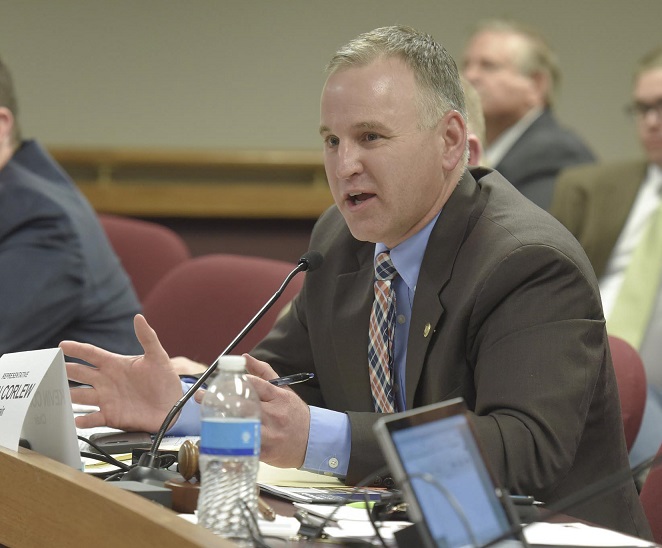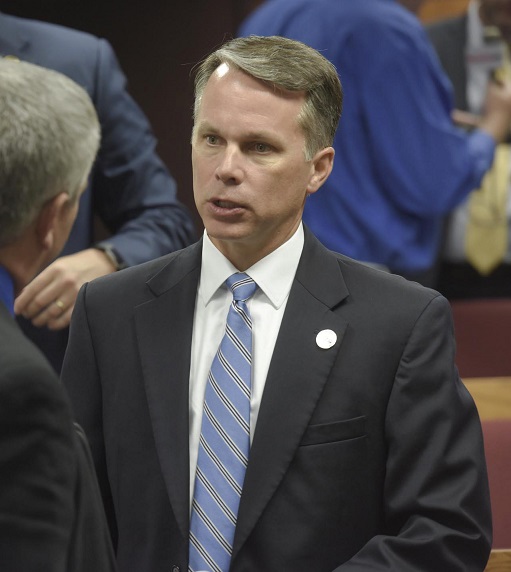The Missouri House has proposed a $29.2-billion state budget for the fiscal year that begins July 1. Among other things it maintains Appropriations Committee Chairman Cody Smith’s (R-Carthage) plan to apply $100-million of General Revenue to road and bridge projects. That would be in addition to the money in the state’s Road and Bridge Fund, which is dedicated to transportation.

If that proposal becomes law it would be the first time GR dollars have been used for transportation infrastructure. Smith said the state’s road funding has been falling behind for years, and with other proposals to support it having fallen short – including a gas tax increase that was rejected by voters in November – it’s time to consider unprecedented sources.
He also said his plan is a better option than what Governor Mike Parson (R) proposed, to use bonds to support $350-million for bridge projects, which take years to pay off.
“Going further into debt comes at a high cost. We already spend, on average, about 24-percent of the road fund on debt service as it is,” said Smith. “This plan, paying as we go, could save us as much as $100-million over the course of 15 years, and it’s really that simple.”
Democrats say this approach creates uncertainty for the Department of Transportation, which wouldn’t know year-to-year how much money the legislature might decide to give it.
Kansas City representative Greg Razer (D) said the plan also would set a precedent that transportation would compete with other state priorities that are already funded with GR dollars, including education and medical care.

Razer and other Democrats said the state should not get away from using only the Road and Bridge Fund to support transportation.
“It’s something that has served us well for nearly a century,” said Razer.
Democrats say $100-million won’t go very far toward meeting the transportation infrastructure needs across the state. Festus Republican Becky Ruth said a lot of options that have been considered might be short-term solutions. She said this one would be a good start.
“Right now we have to do something, and that’s what the people of Missouri [have] asked us to do,” said Ruth.
Smith said it is his intention to propose the use of General Revenue in future budget years to cover the projects that would’ve been paid for in the governor’s plan. Each year, then, that would have to be decided upon by the General Assembly.
The 13 budget bills that make up the House’s spending plan now go to the State Senate, which will propose changes to it. Then the two chambers will attempt to reach a compromise on a budget to be sent to the governor before the constitutional deadline of May 10.



